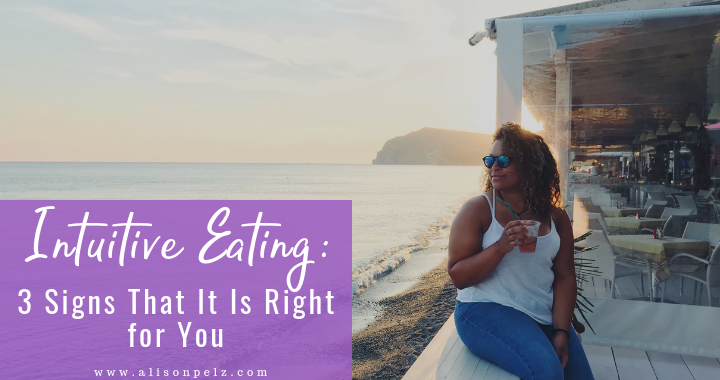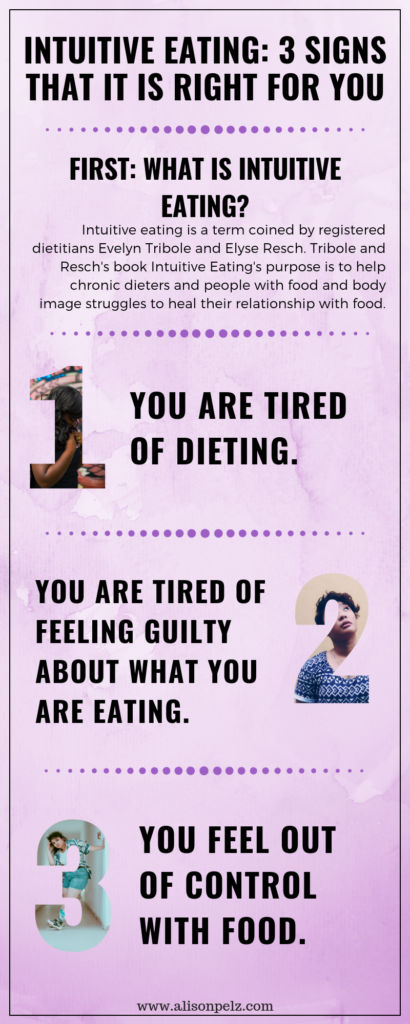Intuitive eating is a term coined by registered dietitians Evelyn Tribole and Elyse Resch. Tribole and Resch’s book Intuitive Eating’s purpose is to help chronic dieters and people with food and body image struggles to heal their relationship with food.
Unlike diets, intuitive eating sharpens our ability to listen to our bodies and to understand when we are hungry and full, what foods to eat, and when the best time for our bodies to eat is. This results in a reduction of worry about food and guilt often associated with dieting.
In a nutshell, intuitive eating is learning to tune into your body’s signals in order to feed and nourish yourself instead of a diet or meal plan.
Are you ready for intuitive eating? Here is how to tell:
Are you tired of dieting?
Have you been on almost every diet known to man? Do you feel frustrated that diets work for a while, but then something happens-like a vacation or a stressful event-then you go off the diet?
Trust me, it is not you, it is the diet. Most diets don’t work long -term. Diets fail, not the people on them. Dieting is a known risk factor for developing a full-blown eating disorder. Eating intuitively can help kick diets–forever.
Are you tired of feeling guilty about what you are eating?
Most diets have rigid rules about what, when, and how much to eat. When these diet rules are “broken,” it can leave the dieter with feelings of guilt.
With intuitive eating, there is no set of rules about what is “good” and “bad” to eat. Eating intuitively helps people tune into their body’s wisdom in order to feed themselves.
Do you feel out of control with food?
Diets give us the illusion of control over food. Particularly when you first start a diet, it feels like you have complete command over your eating, until your biology kicks in (because most diets don’t provide enough energy or calories) or you find yourself in a situation that you are unable to follow the diet.
Furthermore, it is natural to have cravings for more food and certain types of foods if you have been depriving yourself by being on a diet. The overeating (perhaps even binge eating) kicks in when you have access to foods that aren’t on the diet.
Again, it is not because you don’t have enough willpower or intellect. The diet is the problem, not you. Studies show that dieting can lead to full-blown eating disorders.
Eating intuitively rejects the diet mentality and “legalizes” all foods, thereby reducing feelings of deprivation around food.
If you answered “yes” to any of these questions, intuitive eating may be the relief you are looking for.
Intuitive Eating is not another diet in disguise or a weight loss program. Intuitive eating doesn’t preach what, when, and how much to eat, Rather, it teaches you to listen to your body’s signs and signals about how to best feed yourself. With intuitive eating, you will gain confidence around how to feed yourself.
Want to learn more about intuitive eating or see if it is right for you? Call for your free 15-minute phone consultation.
Note: If you are in treatment for an eating disorder, talk with your treatment team about if and when intuitive eating is right for you. If you think you have an eating disorder, get an assessment completed by an eating disorder treatment professional before starting intuitive eating.


